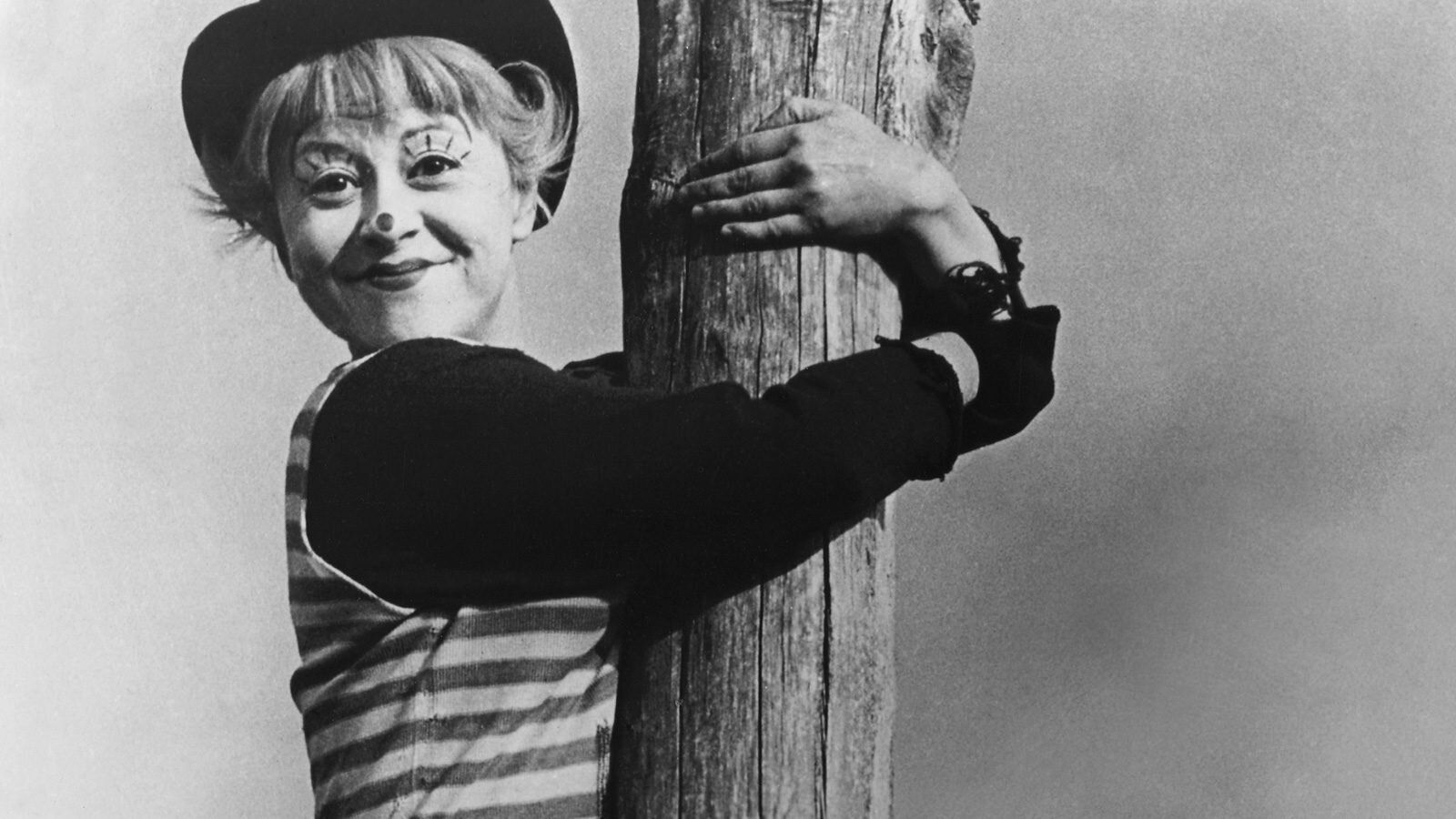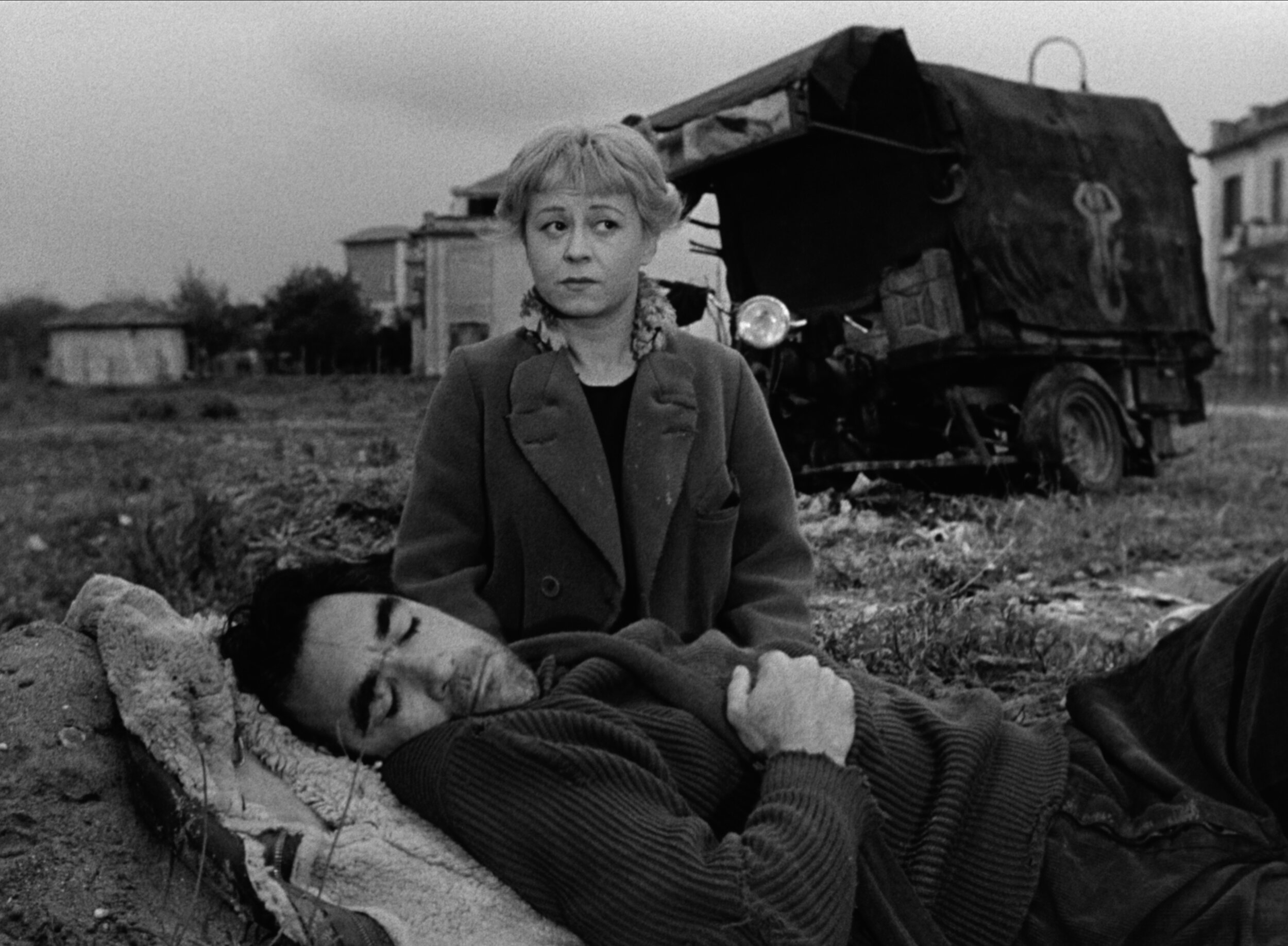2021 Tarkovsky Prize Runner Up: Isabella Wong
LA STRADA: The Tragedy of Human Nature
by Isabella Wong
I didn’t have high expectations when I entered the Kast party to watch La Strada. The trailer for Federico Fellini’s 1954 Italian drama film didn’t strike me as very promising, but I decided to watch it with an open mind. La Strada follows the naive and peppy protagonist Gelsomina, who was sold by her family to a street performer, Zampano. The pair go on to perform circus acts all over Italy before formally joining a circus, where they meet the tightrope walker, Il Matto. Unfortunately, each of these three characters meet a tragic end, with Il Matto dying at the hands of Zampano, and Gelsomina following soon after, leaving Zampano to wallow in his misery alone. Although the trailer depicts La Strada in a positive and even cheerful light, the film had more than its fair share of gloomy scenes. Nonetheless, Fellini’s La Strada illustrates human nature in its raw form and shows how human nature led to the tragedies of Zampano, Gelsomina, and Il Matto.
Zampano’s character is the epitome of brutality and pride. He is narcissistic, egotistical, and motivated completely by self-interest. Throughout the film, even though I expected that Zampano would treat Gelsomina roughly, I never expected that he would actually abuse her and was continuously taken aback each time he did so. Unlike Gelsomina, who is naturally talented at many things, Zampano’s only trick is one that he performs over and over again, like a one trick pony. Thus, his strong sense of pride and need for validation causes him to prevent Gelsomina from learning things from people who aren’t him in order to validate his fragile masculinity. Zampano shows no remorse for his actions and will gladly take advantage of people’s kindness in order to benefit himself, as he attempted to steal from the nuns who offered him shelter. In the end, it was Zampano’s pridefulness that led to his downfall. Zampano’s character realistically depicted some common ways people today cope with their problems: alchohol and sex. Like many people, Zampano recognized his faults, yet was unable to mature and let go of his anger as he spiraled down a path of self-destruction. This sparked a chain of reactions where his accidental murder of Il Matto caused Gelsomina’s emotional breakdown and eventual death. To my dismay, Zampano only showed signs of character development at the very end of the movie, when he realizes that he was the cause of Gelsomina’s death. Zampano’s tragedy was that he realized his mistakes too late and was unable to reflect on them and treat Gelsomina right while she was still alive.
In contrast to Zampano’s rough characterization, Gelsomina’s peppy yet naive personality causes her eventual downfall. Gelsomina’s optimistic outlook on life causes her to stay by Zampano’s side, in spite of the abuse she endures from him. Gelsomina falls in love with Zampano and can’t help but be tied down to him because of her devotion. Over the course of the film, Gelsomina is presented countless opportunities to leave and run away from Zampano, and even succeeded in one attempt before Zampano found her and beat her. Overall, it was Gelsomina’s mentality of being tied down to her abuser that reminds me of that of a victim who stays in an abusive relationship solely because they love their abuser. As a result, Gelsomina became submissive to Zampano and mostly followed his orders without question, unless it went against her morals. That is, until Zampano kills Il Matto, albeit accidentally. Il Matto was Gelsomina’s largest source of emotional support and encouragement when she struggled with fighting for Zampano’s affection. Thus, his death served as the catalyst for both her physical and mental breakdown, leading to her eventual death at the end of the film. In various scenes, Gelsomina can be seen repeating, “Il Matto, he feels bad,” over and over again, as if it was the only thing she could say. Following Il Matto’s death, besides being shaken, Gelsomina feared Zampano in a way that was different from her fear every time he beat her. However, in one scene, Gelsomina’s attitude completely changed from her dreary, worn-out self back to her peppy, optimistic self. To me, this showed that Gelsomina finally came to terms with the fact that the man she loved killed the only friend who encouraged and cheered for her through tough times. However, it’s this change that also made me pity her because it signified how Gelsomina coped with the death of her friend by ultimately giving up on life. Unable to move on from Il Matto’s death and her feelings for Zampano, the viewer finds out at the very end of the movie that Gelsomina lived out the rest of her days with a welcoming family, before succumbing to death. Compared to Zampano, who couldn’t help but lead a self-destructive lifestyle, Gelsomina was someone who couldn’t help but follow her heart, even though it ended up hurting her.
Unlike Gelsomina and Zampano, Il Matto is a free spirited and reckless character, who is by far my favorite character from La Strada. He and Zampano frequently butt heads throughout the film and is often the cause and provocation of their fights. Il Matto, free spirited as he is, is a character that I thoroughly enjoyed watching through his interactions with Gelsomina. Il Matto’s character is one that is easily likeable because of his playful and reckless behavior. One of my favorite scenes from this movie is Il Matto’s gentle encouragement to Gelsomina where he tells her, “I don't know for what that stone is good, but it has got its function. Or everything would be meaningless. Even the stars.” It was this that gave Gelsomina strength in the face of adversity and allowed her to continue striving for Zampano’s affection. Unfortunately, it’s Il Matto’s free spirited, does-whatever-he-wants nature that ultimately leads him to take Zampano’s temper too lightly, and provoke him too far. Il Matto’s death was one that I personally believe is a waste because both the viewer, and Il Matto himself never expected Zampano to go that far. Il Matto’s life was tragically, albeit wastefully, cut short. However, what sets him apart from Zampano, who was bound to his problems, and Gelsomina, who was bound to Zampano, was that Il Matto was only bound to himself.
In the end, Fellini captures human nature as we feel and experience it, something that is innate and often controls us until the very end. Now as I reflect on La Strada through this reaction essay, I’m able to appreciate Fellini’s portrayal of a small moment in time where the loves and dreams of the main characters were never realized. A famous Italian proverb says, “Il tempo passa e non ritorna,” or time passes and does not return. Just as how the time Zampano spent with Gelsomina will never return, Zampano filled up the rest of his days with regret over being unable to cherish her properly. La Strada, emotionally exhausting as it is, teaches us to appreciate those in our life while they’re still here. For now, I think I’ll start with reminding my friends and family with how much I appreciate them.

